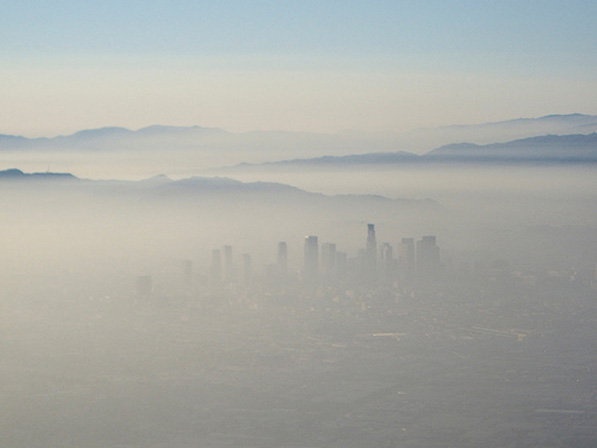![Ultrafine airborne particles contribute to poor urban air quality and endanger health. [LA Metro Transportation Library and Archive]](http://www.jstudentboard.com/reporter/wp-content/uploads/2014/09/JSR_Sept6_Smog-300x225.jpg)
Dr. Yifang Zhu’s laboratory hosts postdoctoral faculty and a flow of student researchers, various types of heavy duty experimental apparati, and intricate measuring and testing tools. The lab is the birthplace of dozens of research experiments, many of which analyze the complexities of particulate matter.
Particulate matter are microscopic airborne particles, including the dust or vehicle engine exhaust that is in the air around freeways and major roads.
One of the lab’s biggest projects, a study on Ocean Park Boulevard in Santa Monica called the Complete Street Project, assessed how levels of particulate matter can be influenced. During the two-year span of this project, this busy street was adapted with sidewalks and aesthetic factors to encourage people to walk rather than drive. The ultrafine particulate matter level around the road decreased by approximately 25%, successfully improving air quality according to the study, published as “Changes of Street Use and On-Road Air Quality Before and After Complete Street Retrofit.”
This lab’s work concludes that, in metropolitan and surrounding areas, poor air quality is contributing to deteriorating human health. According to the American Lung Association, the Los Angeles area ranks near the top in the nation for worst air quality.
The lab publishes work in hopes that legislators will use them to help write environmental reform laws. In an interview with JSR, postdoctoral researcher Shi Shu said, “Environmental science research generally has great impact on policy. Our projects are closely related to traffic air pollution emission.“

